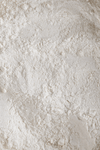Grass Fed Beef Liver is a true superfood. It has been used for eons (lifetimes) to promote fertility, speed recovery from illness, and promote athleticism.
What makes grass fed beef liver so good for athletes?
As it turns out, it's several things. Read on to find out why liver might be the ultimate workout supplement.
Grass Fed Beef Liver: a sacred food?
Organ meats like grass fed beef liver have been considered a sacred food since ancient times - and this sacredness seemed to carry over into the wonder of athletic movement.
In ancient Greece, athletes who ate grass fed beef liver and other animal products quickly stood out from the rest. A long-distance runner named Dromeus was the first Greek athlete to favor meat consumption (before him, most athletes ate cheese instead). Dromeus won two victories at the Olympic Games and two more at the Pythian Games.
A well-known trainer named Pythagoras also recommended a meat-based diet to the athletes he trained. For these athletes, organs such as the liver were of utmost importance.
The early anatomists agreed. "The liver is the source of the veins and the main instrument of blood drainage," wrote the anatomist Galen in his treatise on the human body. Other physicians agreed that liver health is central to overall health and performance.
What makes grass fed beef liver so special?
Thousands of years later, modern science has finally clarified why ancient athletes treated grass fed beef liver the way they did. Liver is rich in:
Heme Iron | Everyone knows that iron is important for the formation of healthy blood, but few people know that dietary iron comes in two different forms. Grass Fed Beef Liver contains highly bioavailable heme iron. Studies show that the body can absorb up to 35% of the heme iron ingested.
Nucleic acids | Nucleic acids are macromolecules consisting of individual building blocks, the nucleotides.
Under normal circumstances, the body can produce nucleic acids through de novo nucleotide synthesis pathways. However, under stressful conditions, the demand for nucleic acids can exceed production capacity, and nucleic acids become essential nutrients.
Lipotropics | Lipotropics are important amino acids or B vitamins that help maintain liver health. These nutrients help the liver get rid of fats, so that normal liver function can be maintained and cirrhosis can be prevented.
Cytochrome P450 | Cytochrome P450 is an important enzyme family involved in natural steroid production, liver detoxification, and much more.
Potassium | This electrolyte helps nerves maintain the right level of conductivity. It is important for muscle contraction, water balance and much more.
Phosphorus | This vital mineral helps maintain healthy bones and repair delicate tissue.
Folate | Folate is an important B vitamin involved in DNA production, cell division and nerve protection. Folate is especially important for pregnant mothers.
Carotenoids | Grass Fed Beef Liver is rich in beta-carotene and preformed Vitamin A. These vitamins are important for healthy vision, clear skin and normal cell differentiation. Liver is so rich in carotenoids that it should not be consumed every day (in large quantities).
Grass Fed Beef Liver for Bodybuilding
Many nutritional and lifestyle trends originate in the eccentric world of bodybuilding, and the resurgence of Grass Fed Beef Liver was no exception.
It all started in the 1930s, when an Italian-American bodybuilder named Tony Sansone began touting the benefits of Grass Fed Beef Liver, other beef organs, and a variety of other whole foods.
Sansone was ahead of his time - it wasn't until the 1940s and 50s that other bodybuilders began using Grass Fed Beef Liver for muscle building. Armand Tanny, the 1950 Mr. America, famously promoted Grass Fed Beef Liver as part of a diet based exclusively on raw animals.
As the Weston A Price Foundation explains, the growing popularity of liver was also supported by scientific findings:
"Many bodybuilders used desiccated liver after the experiments of Dr. Benjamin Ershoff in the early 1950s. Ershoff was the one who conducted the famous liver study in which rats fed 10 percent desiccated liver swam much longer compared to the controls."
Steve Reeves, one of America's first movie stars, also considered Grass Fed Beef Liver to be one of the most important training supplements. Reeves' appearance was so impressive that he attracted hordes of shocked onlookers wherever he went. Here is an account from Milton Moore:
"Tony Lanza and Steve were looking for a suitable location for the shoot when they suddenly heard an accident behind them. A man had driven his car into another car. He climbed out of the wreckage, ran up to Steve, shook his hand and said, 'I just had an accident over there and I had to come over and congratulate you because you're the reason for it. I couldn't believe my eyes!'"
As imposing as Tanny and Reeves were, neither of them possessed the most impressive physique of the 50s. That honor went to Reg Park, a young British bodybuilder whose massive 105-kilo frame led him to three Mr. Universe victories.
Reg's nutritional tips were as follows:
"[...] Increase your protein intake. Soft-boiled eggs, cheese... Lean beef, veal, liver and all kinds of shellfish are good. Don't use white sugar, but limit your 'sweets' consumption to a few spoonfuls of honey a day."
Amazingly, Park started bodybuilding when synthetic steroids were not yet available. To this day, his physique sets the gold standard for how muscular a drug-free - but liver-supplemented! - human can hope to become.
Can Grass Fed Beef Liver boost muscle growth? If Tanny, Reeves and Park are anything to go by, we would certainly say yes.
Grass Fed Beef Liver for Powerlifting
After Grass Fed Beef Liver was popularized by bodybuilders, it didn't take long for Grass Fed Beef Liver and desiccated liver supplements to reach the world of powerlifting.
In some cases, the same bodybuilders mentioned above also used liver to set powerlifting records.
Reg Park was the second man in history to bench press 227 kilos (500 pounds), missing out on first place by just a few days. Steve Reeves did 225 barbell curls from the floor while kneeling - certainly a world record at the time.
And finally, there is the case of Arthur Saxon, a powerlifter who preceded the two mentioned. Saxon used a beef extract called Bovril and set a still-standing world record in the "two-handed lift": 448 pounds!
For decades, beef liver and beef extracts remained a popular choice for strength athletes until synthetic steroids eventually overshadowed them. In the 21st century, beef liver is still a popular training supplement for natural strength athletes. The dried liver capsules can be taken both before and after training to increase strength and muscular endurance.
Beef Liver for Other Athletes
Beef liver isn't just good for building muscle. The same factors that make it good for strength athletes also make it good for endurance athletes – runners, cyclists, etc.
Why can liver help so many different sports?
Here's a hint: Practically every type of sport is strenuous.
And that means that practically every athlete can benefit from the iron, enzymes, B vitamins, and other "anti-fatigue factors" in the liver. Interestingly, Dr. Ershoff's early experiments with beef liver showed that it far outperformed isolated B vitamins, suggesting that the unidentified anti-fatigue factors in the liver should not be overlooked.
Intense athletic activity can lead not only to a general overtraining syndrome but also to chronically high liver enzymes. Athletes who want to push their limits and stay healthy would do well to include some enzyme-rich beef liver in their diet. Once absorbed, these enzymes can balance the body's own enzymes.
All in all, the unique combination of nutrients in beef liver can combat stress and help your body adapt more quickly to any type of exercise it faces. Taking beef liver can shorten recovery time after any type of workout.
How to Use Beef Liver for Energy Gain
At this point, you may be wondering how you can harness the benefits of beef liver for more strength and faster recovery for yourself.
It's actually quite simple - the most obvious way to experience the power of beef liver is to simply eat it.
But that's easier in theory than in practice. Even those who don't mind the metallic taste or smell of liver may not have access to fresh liver from truly healthy cattle.
And then there's the possibility of contamination. Considering that conventionally produced beef liver is prone to accumulating certain heavy metals, it would be wise to opt for an organic variety.
If you don't have access to fresh organic beef liver - or if you simply prefer something more convenient - then we may have an even better solution:
Our in-house brand Everstack Beef Liver from 360-day pasture-raised cattle.
If you're ready to naturally enhance your training, try our beef liver capsules. They conveniently put the power of beef liver in the palm of your hand. Six capsules contain enough nutrients to support your training program:
17.2% NRV of Vitamin A
120% NRV of Vitamin B7 (Biotin)
301% NRV of Vitamin B12
139% NRV of Copper









